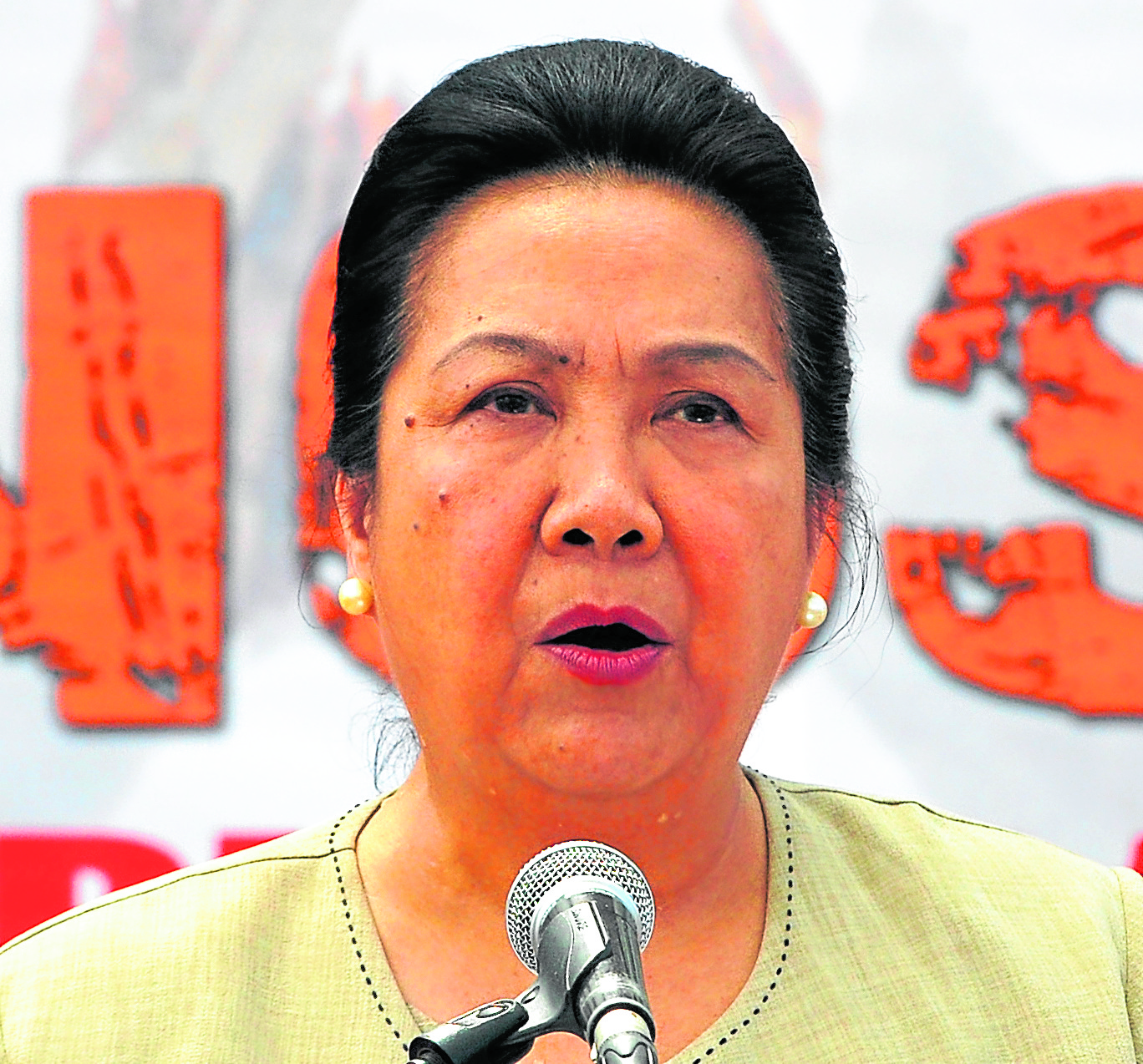
Former Department of Health (DOH) Secretary Esperanza Cabral. INQUIRER PHOTO / RICHARD REYES
MANILA, Philippines — The country’s next Health secretary amid the COVID-19 pandemic must have the commitment, competence, and love for the country so that he or she can do his or her job well, former Department of Health (DOH) heads said on Monday.
Former DOH Secretary Esperanza Cabral, who was present in the briefing held by Vice President Leni Robredo, said that they have formed a criterion on how to pick the country’s next Health secretary as President Rodrigo Duterte only has a few months to go before his term ends.
“Meron kaming ginawang attributes ng isang mahusay na secretary of health, ang una syempre ay commitment do’n sa kanyang ginagawa na para sa tao at hindi para sa kanya; susunod ay competence, kailangan naman na ang ating bagong secretary of health ay nakaka-intindi ng mga problema at alam kung ano ang mga posibleng solusyon do’n,” Cabral said.
“At finally, compassion and all other attributes of a good human being, such as integrity, honesty, love for country, and so forth,” she added.
Currently, Secretary Francisco Duque III heads the DOH, but he has faced many resignation calls — from both the opposition and administration allies.
Despite alleged incompetence in managing the COVID-19 — aside from accusations of corruption within his agency regarding the procurement of supposedly overpriced pandemic supplies — Duque has enjoyed support from Duterte, who said that he would not fire him.
But according to former DOH secretary Manuel Dayrit who was also present during Robredo’s briefing, the government’s response in the early stages of the pandemic was slow and lacking.
“Para sa akin, medyo mabagal ‘yong pagkilos. Kasi alam na nagkaroon ng outbreak sa China as early as December eh. Sa pagtantya ko, sa obserbasyon ko, kumilos lang bandang March although no’ng February nagkakaroon ng mga press conferences, operationally hindi pa kumikilos eh,” Dayrit said.
“So unang-una, mabagal ang kilos — at saka ang pagkilos talaga kailangan operational eh, organizational eh, ibig sabihin niyan handa talaga lahat ng mga ospital, lahat ng mga offices ng DOH. Number two, para magawa ‘yon, kailangan meron ka nang planning eh, so meron naman tayong eksperyensiya before with other epidemics,” he added.
Dayrit — whose tenure with the DOH spanned the duration of the Severe Acute Respiratory Syndrome (SARS) which is seen as the precursor to COVID-19 — believes that there was a prevailing thought that the disease would not spread quickly, hence the relaxed attitude.
He also said that if only the country’s officials properly assessed the potential of the virus in its early stages, like what Taiwan did, then the Philippines would have been prepared well for COVID-19 cases.
“Ang nangyari lang, itong mga epidemics na ito hindi talaga kumalat, ‘yong bird flu halimbawa, ‘yong MERS-CoV, so palagay ko ang naging psychology, ‘baka hindi naman kumalat ‘yan eh’. So medyo nag-dilly dally. So ‘yon ang palagay kong malaking miscalculation,” he claimed.
“Eh ang problema dito sa virus na ito, itong COVID-19, kaiba doon sa SARS eh. Doble, triple ‘yong transmissibility. ‘Nong sa SARS, kumilos agad tayo doon; pero ito, mabagal na tayo kumilos, mas transmissible pa, kaya nakapasok agad ‘yong virus. Tapos no’ng nakapasok na, community spread, nahirapan na tayo,” he explained.
The government has been criticized for allegedly prioritizing ties with China over public health safety, as it refused to heed calls to ban entry of travelers from China. Last January 30, as the country recorded its first confirmed case of the COVID-19, then called 2019-nCoV, President Duterte said it is unfair to close borders to China.
What Duterte did was to ban travel from Hubei province, where Wuhan — said to be the origin of the COVID-19 — is located.
One of the staunch critics back then was Robredo, who as early as January 31 asked the government to impose a China-wide travel ban. She also chided the administration for its supposed double standards, as it allegedly considered China’s welfare over the country.